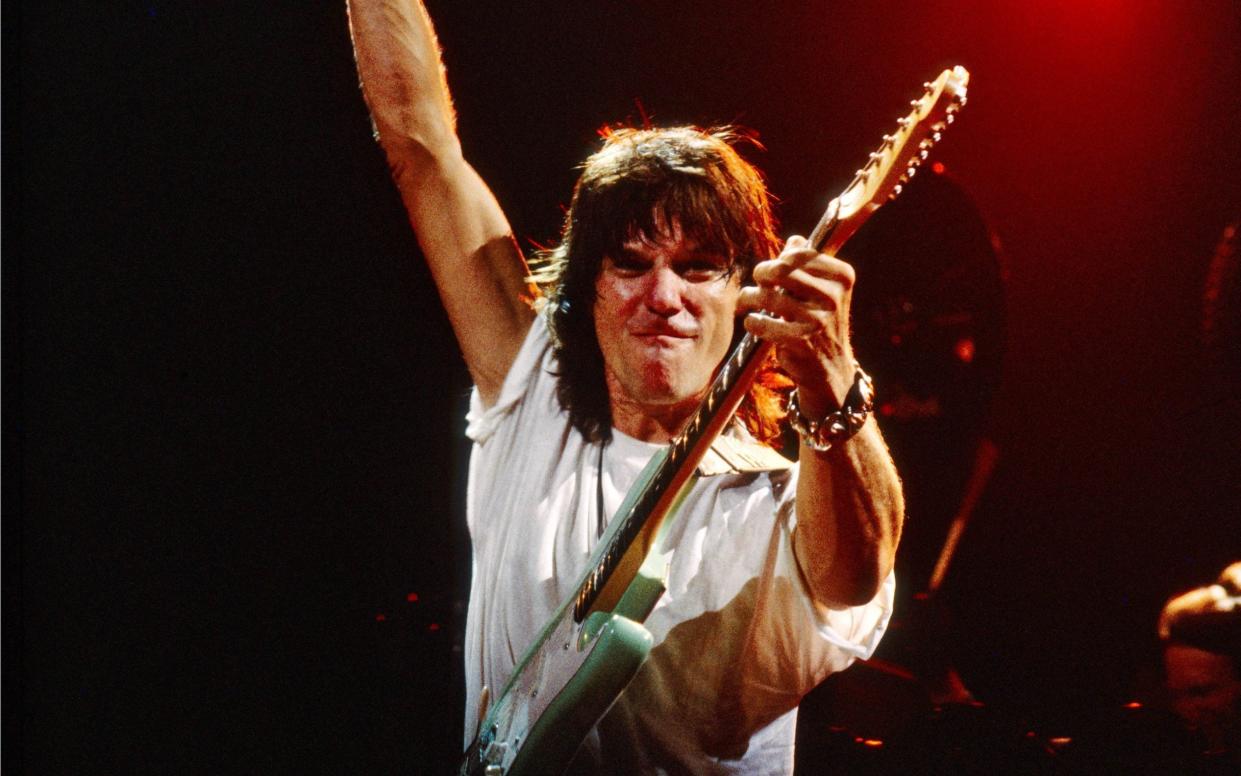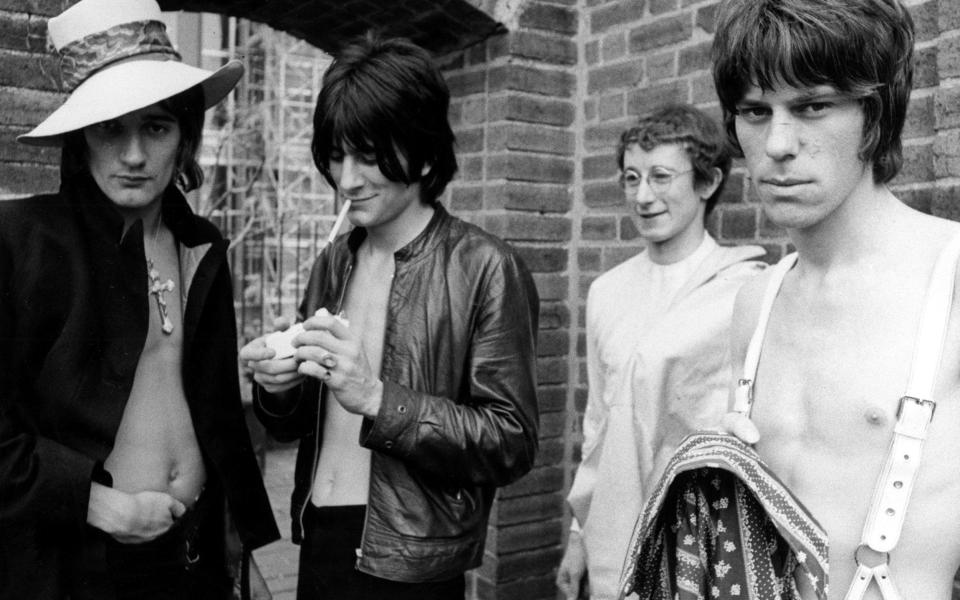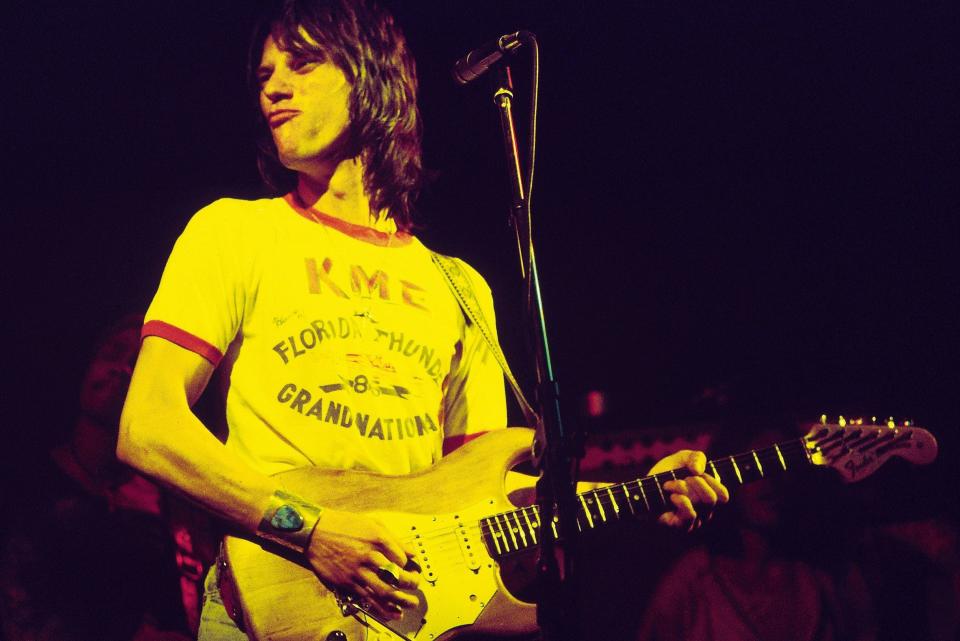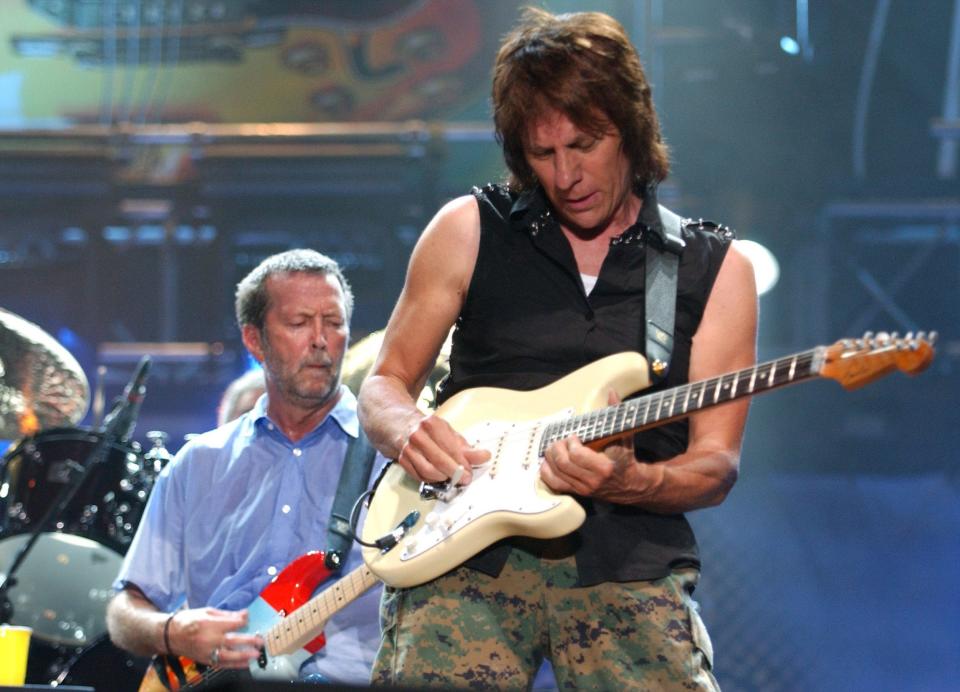Jeff Beck, one of the greatest and most revered guitarists in the history of rock music – obituary

Jeff Beck, who has died aged 78, was among the most dazzling and innovative virtuosi in the history of rock music.
His biggest hit – albeit one he was never remotely proud of – came with the song Hi Ho Silver Lining which spent 14 weeks in the UK charts in 1967 and another 11 weeks when reissued in 1972, and has remained a wedding dance floor perennial ever since.
But Beck rarely sang, composed scarcely more, and avoided both stages and studios until the proddings of his singularly inconstant muse forced him out of the rural seclusion of his home in East Sussex to find fresh contexts in which to express his extraordinary talent with the guitar.
His most important legacy was as a supremely gifted guitarist. The “guitarist’s guitarist”, as he was often described, he was a pioneer along with Jimi Hendrix and Jimmy Page of hard-rock and heavy-metal playing.
Wiry and alert, Beck could coax, squeeze and wring every conceivable musical note and emotion out of the instrument of which he was indisputably master. Courageous and willing to take risks even when playing live, he could wrench a dizzying stream of invention from the most minimal of set-ups.
“It’s that inbuilt desire to strive for something so you can be the leader,” he explained before a concert in Paris in 1990. “I never wanted to be a follower. People who follow fashion tend to go down with the ship. I’ve always been one to jump off one boating log and on to another when the log starts to roll over.”

Beck first came to prominence in 1965 after replacing Eric Clapton in The Yardbirds, recommended by his friend from childhood Jimmy Page, their original choice. Under Beck’s influence the group became increasingly experimental, his unconventional guitar timbres, the microtonal inflections in his string bends for the riff of Over, Under, Sideways, Down, and his use of feedback on Shapes Of Things all influencing the likes of Jimi Hendrix and Paul McCartney.
In 1967, Beck left to form the equally ground-breaking Jeff Beck Group, with Ronnie Wood on rhythm guitar and Rod Stewart on vocals. Their first two albums Truth (1968) and Beck-Ola (1969), helped lay the groundwork for heavy metal and famously inspired Page, who had replaced Beck in the Yardbirds, to leave the band himself and found Led Zeppelin.
In 1973 Beck formed a thunderous, take-no-prisoners trio called Beck, Bogert and Appice, then made a series of best-selling jazz-fusion instrumental albums commencing with Blow by Blow (1975), and Wired (1976), both collaborations with the former Beatles producer George Martin. Beck’s solo playing was the focus of both records, which were rarities in rock terms for being commercial successes despite having no vocals.

But Beck would never maintain the sustained commercial success of so many of his contemporaries and bandmates. Nick Mason recalled that Pink Floyd had wanted to recruit Beck to be its guitarist after the departure of Syd Barrett but “none of us had the nerve to ask him”. In 1969, following the death of Brian Jones, Beck was approached about joining the Rolling Stones, but turned down the opportunity, recommending his bandmate Ronnie Wood instead.
The 1980s saw him make guest appearances on records by Tina Turner, Rod Stewart, Mick Jagger, Diana Ross and Malcolm McLaren.
But having abandoned the populist cliches of rock at the onset of the 1970s, as well as the elitist vagaries of jazz-fusion in the early 1980s, he generally preferred to stay at home and tinker with his beloved vintage cars, saying: “I am just not cut out for road life.”
A vegetarian and wildlife campaigner since the 1960s, Beck described the rock lifestyle as “juvenile”, and was not temperamentally suited to the recording studio, often appearing bored and irritable when making a record, prone to mood swings and struggling with concentration ever since fracturing his skull aged 11 after coming off his racing bike.
Geoffrey Arnold Beck was born on June 24 1944 at Wallington, south London. His father worked as an accountant and his mother had a part-time job in a local chocolate factory. He had a sister, Annetta, four years older than him, and the family lived in a three-up, two-down semi in what Jeff, as he was always known, later dubbed “net-curtain land”.
Pride of place in their sitting room was taken by a baby grand piano which he remembered his mother Ethel playing beautifully. But while he loved listening to her, he hated being coerced into piano lessons and was equally reluctant when enrolled by his mother in the local church choir.
After his bike accident he began to rail against his schoolwork at Sutton East County Secondary Modern too, and turned his attention instead to the one thing that had long fascinated him – the sound of guitars.

Something about “the wire and the wood” did it for him, Beck recalled, and he was rapt and incredulous when he heard a recording on the radio of Les Paul playing electric guitar on How High the Moon, deciding there and then that that was the instrument for him. Other early influences included Cliff Gallup, B B King, Steve Cropper and Lonnie Mack, and the general influx of blues and early rock’n’roll into Britain in the 1960s.
As a teenager, Beck learnt to play on a borrowed guitar and made several attempts to build his own one, first by gluing and bolting together cigar boxes for the body and an unsanded fence post for the neck, with model aircraft control lines and frets simply painted on it.
While attending Wimbledon Art College, he played in a succession of groups, including Screaming Lord Sutch and the Savages, in 1962, when they recorded Dracula’s Daughter/Come Back Baby.
After various odd jobs as a painter and decorator, groundsman on a golf course, and a car paint sprayer, Beck formed a band called rhe Nightshift, which played at the 100 Club in London’s Oxford Street and released Stormy Monday as a single. In Nursery Rhyme, recorded in 1964 with the Tridents and later released on the album Beckology (1991), Beck’s experimental approach was apparent in an extraordinary guitar solo, played largely outside the key and occasionally abandoning distinct pitches for a more percussive sound.
Short stints in other bands followed until his friend and fellow session musician Jimmy Page (to whom his sister had introduced him when they were teenagers) put him forward for the Yardbirds.
Jeff Beck, whose fingers and thumbs were insured for a reputed £7 million, earned wide critical praise throughout the course of his career and received a total of eight Grammy Awards.
In 2014, he also received the Ivor Novello Award for Outstanding Contribution to British Music. He was inducted into the Rock and Roll Hall of Fame twice: as a member of the Yardbirds (1992) and as a solo artist (2009). His last musical collaboration was with his friend Johnny Depp, with whom he finished touring a few weeks ago.
Beck was married for a period in the 1960s to Patricia Brown. In 2005 he married, secondly, Sandra Cash, who survives him. There were no children.
Jeff Beck, born June 24 1944, died January 10 2023

 Yahoo News
Yahoo News 
